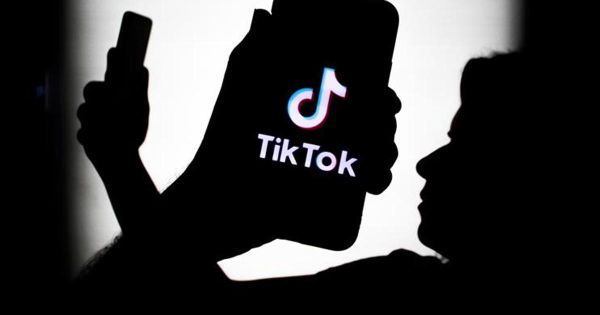
TikTok fined $15.9M for misusing children’s data, and how parents can keep their kids safe online
TikTok has been in the headlines for months mostly due to the U.S. federal and state governments wanting to ban the super-popular video-sharing app over growing privacy concerns and how the app’s Chinese owners handle user data. The app has already been banned on many U.S. federal and state-run sites over concerns that the software has the potential for the Chinese government to spy on the approximate 150 million users in the United States. Globally, TikTok can boast to having 1.53 billion world-wide users in 2023, bringing the social media app under intense scrutiny for how it handles its usage of customer data.
TikTok has recently been fined a staggering $15.9 million for its data protection breaches. This includes misusing the personal data of children under the age of 13, without prior consent from their parental figures. In fact, 1.4 million children under the age of 13 were thought to have used the social media app in 2020, despite 13-years-old being the minimum age.
Cybersecurity experts VPN Overview have examined the ways parents can continue to protect children and teenager’s privacy online considering this breaking news.
How to keep children safe online

(Image credit: Twitter)
1. Discover parental control apps
Parental controls automatically filter what children can access, restrict the times they can use the internet, and allow parents to monitor their online activity. There are multiple options available, including Norton Family.
2. Educate children
The internet has become a common part of contemporary living. So, it’s not always a good idea to simply ban children from going online. They might use social media while they’re at school, visiting friends, or on holiday. It’s best to educate them on cybersecurity from a young; age; nothing can replace the power of open dialogue.
3. Openness and honesty
There’s no denying that openness and honesty are the best policies. If parents are comfortable with their children using social media, they can enforce rules that only let them use it in communal spaces and with shared passwords. This way, they’re able to keep an eye on their online activities, and rest easy knowing they’re being taken care of.
4. Built-in privacy settings
- Built-in ISP: More often than not, internet service providers (ISPs) will come with a built-in parental control option. This is usually a simple keyword filtering option, so parents can block websites and inappropriate content. Parents can enable this by contacting them directly.
- Built-in operating systems: The device’s operating system will also have built-in parental controls. Plus, these are usually more effective – and free! The method of activating this will depend on whether it is an Android, Windows 10, or macOS. Read our step-by-step guide here.
How to optimize the security settings on TikTok
To ensure TikTok is safe for children, parents can keep an eye on their children’s usage and optimize the security settings on their account. To get started, click on the three lines at the top right-hand corner of the app, press on Privacy, and look out for these three things.
1. Discoverability
- Private account: Turn on this option if the child is under 18. It ensures that only approved users can follow their account and watch their videos.
- Suggest your account to others: If this option is turned on, TikTok will be able to store additional data belonging to children. This could include their phone number, Facebook information, contact details, and data on their internet activities.
- Sync contacts and Facebook friends: This will give TikTok access to the contacts on the child’s device or Facebook.
2. Personalization and data
Here, parents can determine how the social media app uses their child’s data to deliver targeted advertisements. If these options are activated, TikTok and its third-party business partners will be able to track a child’s internet activity and show them targeted ads.
3. Safety
Finally, one of the best ways to keep children and teenagers safe online is to reduce their contact with strangers and harmful content. These safety features determine how others can interact with children on the platform.
- Downloads: If a TikTok account is set to private, this is automatically turned off and others cannot download their videos.
- Comments: This allows parents to choose who can comment on their child’s videos, approve comments before they become visible, and filter out offensive words.
- Following List, Duet, Stitch: Parents can decide whether people can see their children’s followers and activity. It will also control who can duet with their videos (show content side-by-side), and stitch their videos (add multiple videos together). To control how people interact with their page and content, change the privacy settings to “Friends,” “Followers,” or “Only Me.”
- Direct Messages: This allows parents to choose who can send their child direct messages. The options are “Friends” or “No one.” However, depending on their age, direct messages may not be available.
A spokesperson from VPN Overview has commented: “In recent news, TikTok has been fined $15.9 million for its improper usage of data belonging to children under the age of 13-years-old. Instead, the app should have taken the necessary steps to ensure its users were of age.
“Social media poses multiple threats to children and teenagers, from inappropriate content to cyberbullying. Younger generations may also accidentally download malicious software or fall victim to phishing attacks, leaving their family’s device vulnerable to outside threats.
“In turn, cybersecurity has never been more important. By understanding these threats, parents can continue to protect their children and teenagers against such dangers, including social media’s misuse of data.”
For more on TikTok being fined for breaches of data protection laws, including using the personal data of children aged under 13 without parental consent, see the video accompanying this article.
(Primary Source: VPN Overview) / (Cover photo, Image credit: Twitter)
(Additional sources: DemandSAGE (stats) / Sky News / Norton)
Posted by Richard Webster, Ace News Today / Follow Richard on Facebook, Twitter & Instagram






